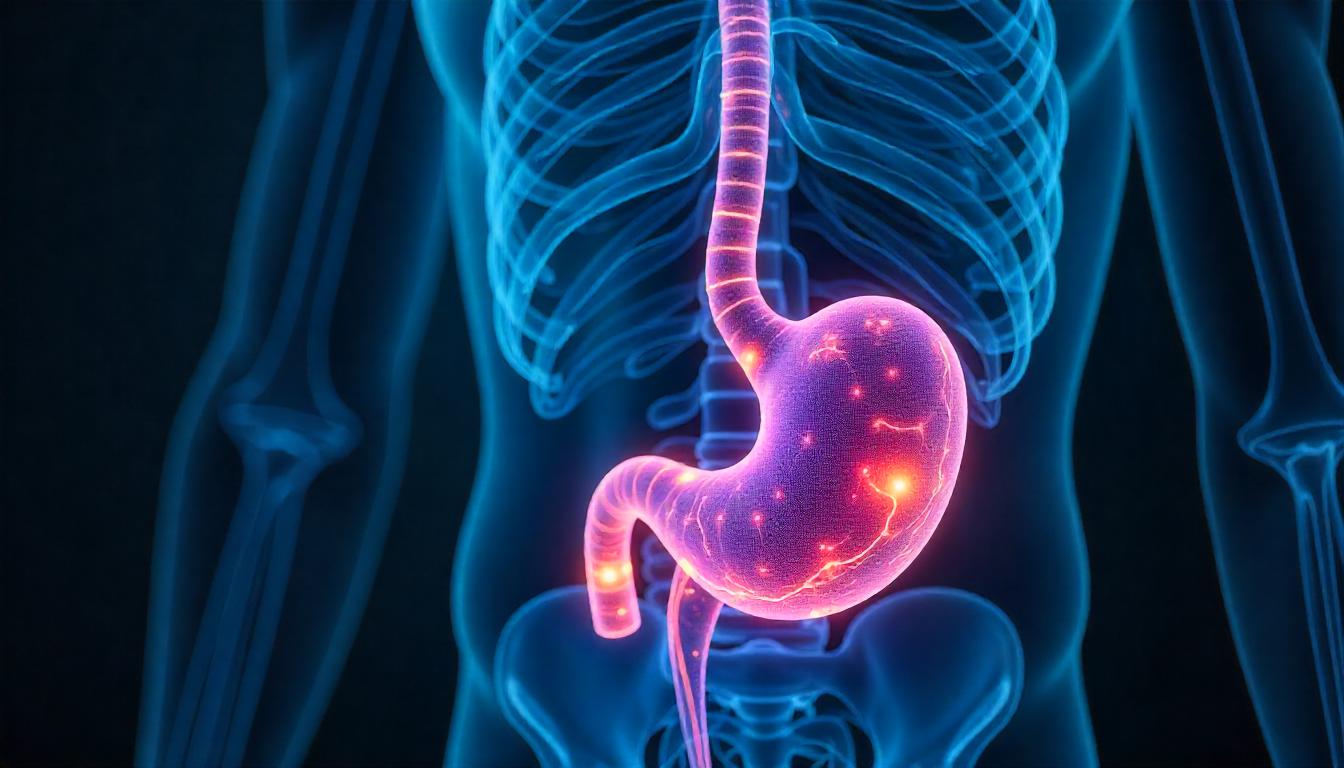Your gut is more than just a digestion center — it’s a second brain. Science now confirms what ancient wisdom always suspected: the gut and the mind are deeply interconnected. Housing over 100 million neurons and trillions of bacteria, your gut doesn’t just influence physical health — it directly shapes your emotions, cognition, and mental well-being.
1. The Gut-Brain Axis: Your Body’s Hidden Superhighway
The gut and brain are connected through the gut-brain axis — a complex, bidirectional communication network involving nerves, hormones, and immune signals. The vagus nerve, which runs from your gut to your brainstem, acts like a fiber-optic cable transmitting data in real time. That’s why a gut disturbance (like indigestion or poor microbiome health) can lead to anxiety, mood swings, and even cognitive fog.
2. Microbiome Mood Swings: Can Gut Bacteria Cause Depression?
Recent research has shown that 90% of serotonin — your brain’s “feel-good” neurotransmitter — is actually produced in the gut. An imbalanced gut microbiome can disrupt serotonin levels, contributing to depression and anxiety. This means digestive issues may not just be uncomfortable — they might be altering your entire emotional state.
Yes — and the evidence is compelling. Studies now show that people with depression often have a less diverse gut microbiome. Certain strains of bacteria are linked to the production of neurotransmitters like dopamine, GABA, and serotonin. When these beneficial microbes are missing or overpowered by harmful bacteria (a state called dysbiosis), mental health suffers.
For example, in a study published in Nature Microbiology, researchers discovered that individuals lacking Coprococcus and Dialister — two gut bacteria associated with anti-inflammatory and neuroactive functions — were significantly more likely to experience depressive symptoms.
In short, if your gut bacteria are inflamed, imbalanced, or overwhelmed by processed food and antibiotics, they might be silently pulling the strings of your mood, motivation, and even mental clarity.
Is It Possible That Your Gut Thinks Before Your Brain Does?
It’s a strange thought: the flutter in your stomach before a big decision. The “gut feeling” that something isn’t right. We’ve always dismissed these instincts as metaphorical. But what if they’re not?
What if your gut is actually thinking, feeling, and influencing your mind in real time?
What Is the Gut-Brain Connection?
Science now confirms what mystics and healers have long intuited: your digestive system has its own nervous system—the enteric nervous system—with over 500 million neurons.
This system is so independent and intelligent that researchers now call it the “second brain.”
It:
- Processes emotions
- Sends real-time signals to your brain
- Controls mood, focus, and even subconscious decision-making
And this isn’t woo-woo. It’s driven by a two-way communication highway called the vagus nerve.
How Does the Vagus Nerve Become Your Inner Messenger?
The vagus nerve is the longest cranial nerve, extending from your brainstem down to your gut. Think of it as a spiritual fiber optic cable, transmitting data between your heart, lungs, stomach, and brain.
When your gut is balanced and healthy, the vagus nerve transmits:
- Calmness
- Emotional stability
- Mental clarity
- Hormonal balance
When your gut is inflamed or imbalanced, it transmits:
- Anxiety
- Brain fog
- Mood swings
- Panic
Why Is Your Gut Often Smarter Than Your Mind?
Ask yourself:
- Have you ever made a bad decision even though it “sounded logical”?
- Did you ever feel something was wrong before facts confirmed it?
That’s your second brain working faster than your conscious thoughts.
Your gut bacteria produce neurotransmitters like:
- Serotonin (over 90% made in the gut)
- Dopamine
- GABA (anti-anxiety)
These shape your mood before your brain even registers what’s going on.
Is Poor Gut Health the Hidden Root of Depression and Brain Fog?
In 2022, a meta-analysis revealed that patients with gut dysbiosis (bacterial imbalance) were 3 times more likely to suffer from anxiety and depressive disorders.
Why? Because a leaky or inflamed gut:
- Disrupts serotonin and dopamine production
- Sends distress signals through the vagus nerve
- Creates neuroinflammation in the brain
In simple terms: a toxic gut creates a toxic mind.
Table: Gut Health vs. Mental Health Impact
| Gut Condition | Mental Response |
|---|---|
| Balanced microbiome | Calm, clarity, emotional balance |
| Leaky gut | Brain fog, indecisiveness |
| Candida overgrowth | Mood swings, sugar addiction |
| Chronic inflammation | Anxiety, panic, depression |
How Spiritual Traditions Always Knew This?
Ancient yogis, Taoist monks, and tribal healers often placed awareness on the solar plexus—the gut—believing it to be the seat of intuition.
They practiced:
- Breathwork (to stimulate vagus nerve)
- Fasting (to reset gut microbiota)
- Herbal gut cleanses (to release emotional toxins)
Modern science now validates what these spiritual systems knew intuitively:
Healing the gut clears the mind.
How to Nourish Your Gut for Mental Clarity
- Eat fermented foods: sauerkraut, kimchi, kefir — full of live probiotics
- Prebiotic fiber: feeds your good gut bacteria (think garlic, oats, bananas)
- Vagal tone exercises: chanting, cold plunges, deep diaphragmatic breathing
- Limit processed sugar: starves harmful gut bacteria
- Practice silence: gut instincts rise when the mind is still
Frequently Asked Questions
Q: How fast does gut health impact mental clarity?
A: Many notice a difference in 72 hours of clean eating and probiotic support.
Q: Can antibiotics damage the gut-brain connection?
A: Yes. They wipe out both good and bad bacteria, affecting mood for weeks or months.
Q: Can I heal anxiety through gut-focused methods alone?
A: In many cases, yes—especially when combined with nervous system regulation.
Final Thoughts: Is Your Gut the Spiritual Compass You’ve Ignored?
The ancient wisdom and modern science both point to one truth:
Your stomach is not just digesting food—it’s digesting emotion, energy, and intuition.
In a world full of distractions and overstimulation, maybe the path to mental peace isn’t in more apps, pills, or advice…
Maybe it starts by listening to your gut—literally.

